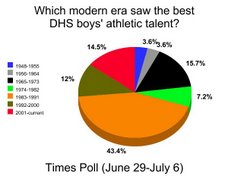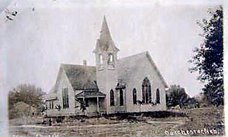COVID-19 continues to open our eyes to aspects of global and federal governance, as well as our society in general. It has also reminded us that small school education offers so many advantages -- the primary advantages being a more personalized experience for students and more transparency for parents and taxpayers.
Smaller schools know how to educate their students and typically can do it with better results than their larger counterparts.
In a recent report by the Rural School and Community Trust, Lorna Jimerson, Ed.D, offered her top 10 research-based reasons why smaller works best for schools. The list below was forwarded to us by a loyal reader, and we thought it was important to share it with other readers of the Times.
Patrons of the Dorchester Public School district are encouraged to review the following from time to time:
Top 10 Reasons Small Schools Work Better
- There is greater participation overall in extracurricular activities, which have been linked to academic success.
- Small schools are safer.
- Kids feel they belong.
- Small class size allows more individualized instruction.
- Good teaching methods are easier to implement.
- Teachers feel better about their work.
- Mixed-ability classes avoid condemning some students to low expectations.
- Small classes promote personalized learning and encourage positive social interactions.
- Smaller districts mean less bureaucracy.
- More graduates in one school alleviate many problems of transitions to new schools.



















































................ small schools may be good for yer kids ....................... but they are hard on my wallet .......................... you want to pay my property tax bill ............................. oh thats right we don't know who you are ...................................... you probably live in the basement of your ex-wifes home .....................................................
ReplyDelete